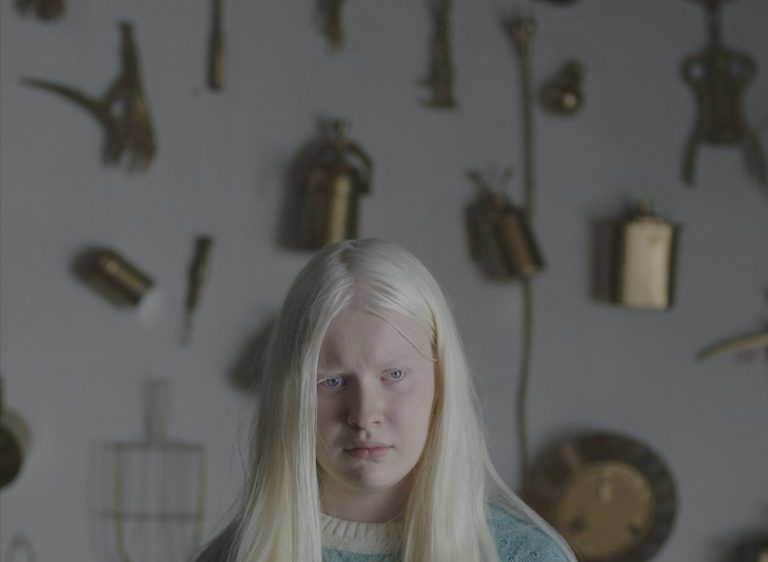The story of a fragile & bizarre friendship
The Venice Biennale kicked off their Biennale College program in 2012, to finance three lowbudget films every year. The program is open to directors preparing their first or second feature film. 'Deva' is the first-ever Hungarian film treatment on the program, by Cluj-born script writer, author, poet and literary translator Petra Szőcs. She graduated as a Hungarian-German Literature major at ELTE University, then earned a Film Dramaturgy degree at the University of Theatre and Film Arts Budapest before progressing to become a Doctor of Liberal Arts here. Besides film-making, her poems and short stories have been published.
In her latest film, Szőcs tells the story of a teenage albino girl called Kató, who makes friends during her summer break with the volunteer Bogi, but the only way she can express her friendship is by betraying someone. The leading roles are played by Csengelle Nagy, Mohamed Fatma and Boglárka Komán, while the supporting children are students of the St Francis Foundation of Déva.
This is the second time Szőcs worked with an albino girl, her previous short film, 'The Execution', starred Katalin Moldován. The film featured siblings who re-enect the Ceaușescus' execution over and over again. It was screened at the Cannes Festival, and got a special mention at Sarajevo International Film Festival.
The storyline of Déva was also inspired for the most part by The Execution's star, Katalin Moldován, but having outgrown her own role, fellow Transylvanian albino girl Csengelle Nagy was cast as her replacement. ”Csengelle was a real pro, she coped with the filming better than anyone. But she and Kató are entirely different characters, so the script needed a major overhaul,” the director reflects. The second lead actor, Boglárka Komán is a full-time caretaker at the eighth district Child Protection Agency of Budapest, where she works with disadvantaged children. ”Bogi really liberated Csengelle, but their film friendship retained a bizarre fragility, and the film focused on that elusive quality.”
According to the story, Kató is brought up in the Déva orphanage. She is an energetic tomboy who sticks out among her peers, and her very presence is a challenge to her environment. She wants to get adopted by a new stepmother. During the summer break she suffers an electric shock in a hairdryer accident, that upsets the world around her. As the orphanage is overrun by electricians, she befriends a new volunteer called Bogi, whom she adores. The film unfolds the magical and surreal aspects of a child's perspective, and throws new light on postSocialist Déva, according to the synopsys.

'Déva' by Petra Szőcs
The film was co-written by Gergő V. Nagy ('Blossom Valley', 'His Masters Voice') and Petra Szőcs ('The Execution'), and contributors include producer Péter Fülöp, cameraman Zoltán Dévényi, editor László Dunai. The film was shot on location at Déva and Petrozsény in Romania, and supported by Biennale College Cinema.
“I wanted this film made very fast. I really had no other option, considering how I know of no other international program that actually finances the production of first film grantees.”
Every year, Biennale College Cinema offers 150 000 Euros to support three directors of first and second films. Winners are selected in a twophase process: first, a script workshop is held for twelve directors, and the scripts are evaluated to find the three best films to be granted production budgets.
“The workshop was such a thrill, it was entirely worthwile to participate. It was on the island of San Servolo, in a former psychiatric ward. There's also a botanical research garden on the island, where trees are periodically infected with various pests to determine their resilience."
The film plan developed a great deal at the workshop, we consulted the best professionals all day, not only regarding the storyline, but also visuals. All the other directors were very supportive, we're still in touch, and the other (non-financed) plans have since all been produced, or are in the making.
